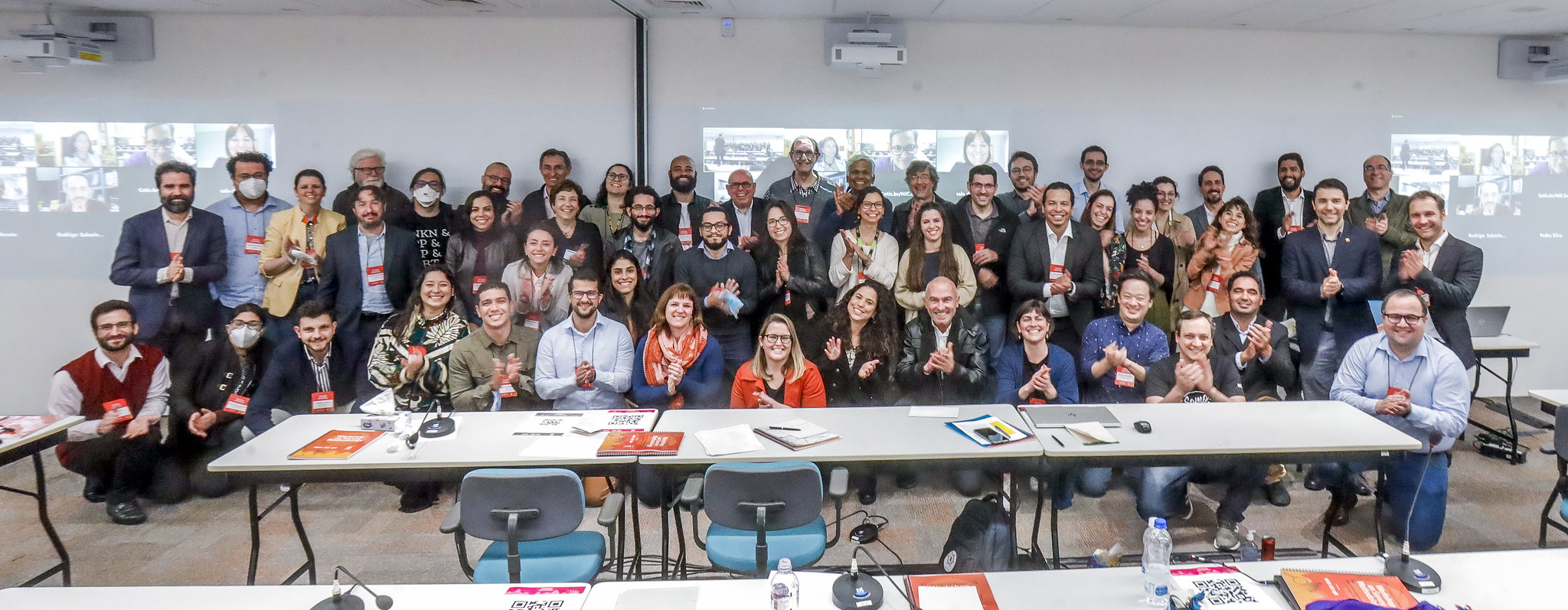Cetic.br promotes debates on challenges for the production of statistical data in the context of emerging digital technologies
In its 12th edition, the Annual Workshop on Survey Methodology conducted by Cetic.br|NIC.br brought together national and international experts from different sectors
With the central theme "Methodological challenges for data production in the context of emerging digital technologies," the 12th NIC.br Annual Workshop on Survey Methodology took place from August 29 to September 1 in São Paulo, bringing together public managers, researchers, representatives of civil society, and international organizations. The event, promoted by the Regional Center for Studies on the Development of the Information Society (Cetic.br) of the Brazilian Network Information Center (NIC.br), included mini-courses, thematic sessions, lectures, and discussions on practical cases related to artificial intelligence, machine learning, and other disruptive technologies.
In the opening of the workshop, NIC.br's president-director, Demi Getschko, emphasized that NIC.br is a non-profit institution, and through revenue from the registration of .br domains, it promotes actions and projects that benefit the Internet in the country, such as the annual workshop on survey methodology, among various other actions. Alexandre Barbosa (Cetic.br|NIC.br manager) highlighted that the Study Center has prioritized methodological rigor since its inception in 2005, striving for excellence in producing statistically comparable international data. Today, Cetic.br monitors access and use of ICTs in more than ten areas, many related to the United Nations Sustainable Development Goals agenda.
The annual survey methodology workshop, co-organized by the National School of Statistical Sciences (ENCE) of the Brazilian Institute of Geography and Statistics (IBGE), featured in its opening Professor Gustavo da Silva Ferreira (vice-coordinator of ENCE), who drew attention to the rich exchange of knowledge and mutual collaboration that characterized the meeting.
On the theme "Artificial Intelligence and the political philosophy of the future," keynote speaker Gray Cox (professor at the College of the Atlantic) argued in his presentation that "society should seek to live more wisely, not just more intelligently." In the professor's assessment, intelligence is the ability to sustain and/or enhance one or more values in various contexts over time, while wisdom is systematic intelligence that appropriately responds to a range of values. "We need to adopt a more inclusive 21st-century model, based on reasoning to express individual voices, but seeking to resolve conflicts using more comprehensive forms of rationality, making us wiser and helping us address complex or 'wicked' problems involving multiple, divergent, and incongruent frameworks for understanding values, elements, and dynamics," he commented.
In the first special session, Marielza Oliveira (United Nations Educational, Scientific and Cultural Organization - UNESCO) spoke about the structure of the ROAM-X Indicators of Internet Universality, addressing a perspective on human rights and AI. "Brazil was the first country to have its Internet ecosystem evaluated using UNESCO's Internet Universality indicators, a work conducted by Cetic.br," she noted.
Elaborating on UNESCO's ROAM-X indicators, currently adopted in 45 countries, Marielza Oliveira reiterated that the evolution of the Internet should be based on human rights, be open, accessible to all, and promoted with multistakeholder participation. "The same principles should guide the development and expansion of artificial intelligence. Today, it's a challenge to measure AI usage and monitor how its principles function in practice," she added. She also highlighted the potential impacts of AI on privacy rights, particularly through the adoption of facial recognition software, and outlined damages resulting from algorithm biases. "Multistakeholderism is the path we must follow. It's necessary to unite various sectors when discussing AI development."
With a practical perspective, Luis Aranda (Organization for Economic Cooperation and Development - OECD) presented the work that the OECD has developed to turn AI principles into actions, monitoring the use of artificial intelligence in countries. The OECD's AI national policy database aims to provide a comparable and updated overview. "Maintaining AI national policy databases, classifying AI systems, as well as describing initiatives arising from national artificial intelligence policies are challenges that the OECD faces with AI monitoring," Aranda stated.
Program
Also on Monday, Morgan Frank (University of Pittsburgh) explored the theme "Skills, Technology, and Careers in the Future of Work," and Ellen Helsper (London School of Economics) discussed the importance of measuring digital skills through surveys. The 12th NIC.br Annual Workshop on Survey Methodology also featured special sessions led by Fredrik Otto Lennart Eriksson (International Telecommunications Union - ITU) and Augusto Fadel (IBGE), and participation from speakers such as Vijay Nair (Wells Fargo & UMICH) and Jean-François Beaumont (Statistics Canada), along with mini-courses on how to reduce/measure bias in big data for producing official statistics, conducted by David Marker (LLC), methods to address non-responses, held by Raphael Nishimura (UMICH), and learning from qualitative surveys with Marlei Pozzebon (HEC Montreal & FGV-EAESP). There was also a session dedicated to sharing experiences among various organizations such as STF, IBGE, IRCAI, C4IR, and SEADE.
The event has been held since 2010 by Cetic.br|NIC.br with the objective of discussing emerging topics associated with the production of statistical data on information and communication technologies (ICT) and survey methods with users and public statistics producers.
To check the photographic records of the 12th NIC.br Annual Workshop on Survey Methodology, visit: https://www.flickr.com/photos/nicbr/albums.

Photo: Ricardo Matsukawa/NIC.br Dissemination
This content was automatically translated with the support of artificial intelligence.


